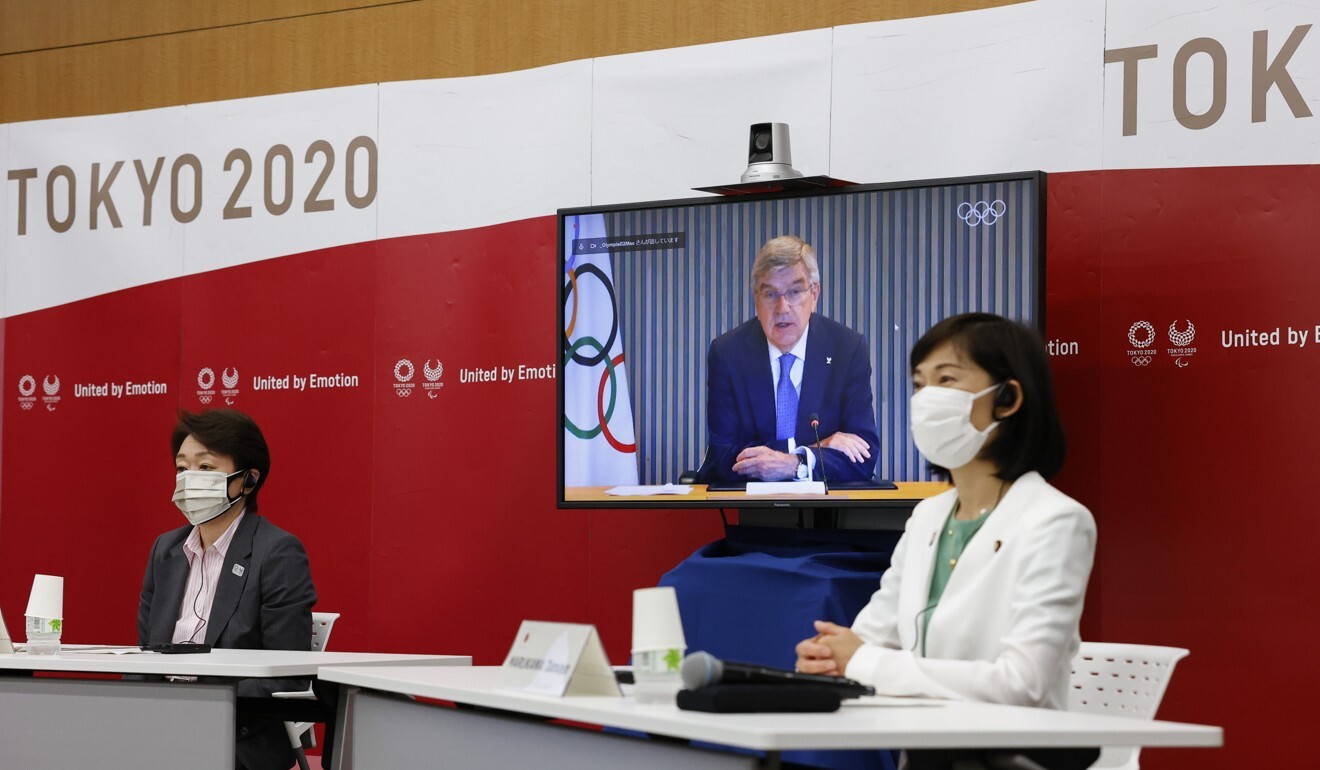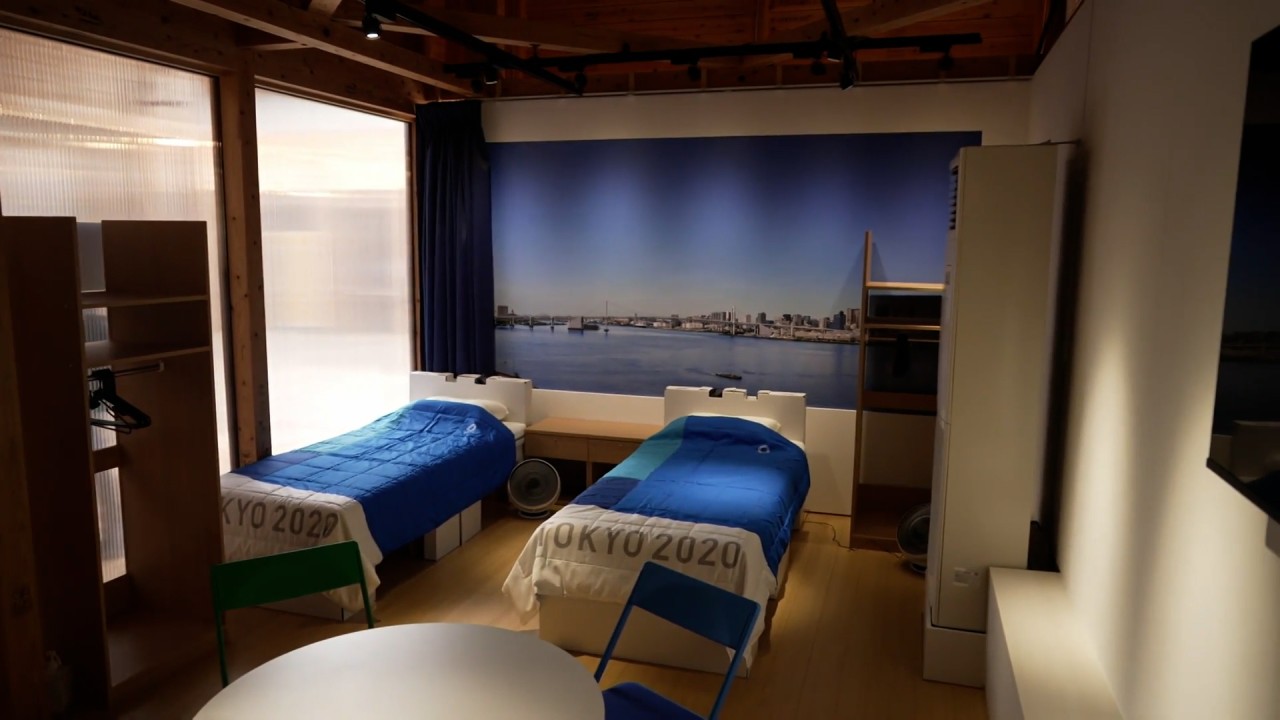
Explainer | Tokyo 2020 Olympics: 30 days until the opening ceremony and the questions that won’t go away
- The IOC is determined to stage the Summer Games, at whatever cost, but forget the fun and frivolity
- How to watch, what are the new sports, and why can’t they just postpone the Games for another year?
Will the Tokyo Olympics be cancelled this year?
No, probably not, unlikely, maybe, not sure. Why the uncertainty? Well, you have a group regarded as experts saying the Games should not be held because of the Covid-19 pandemic and in a normal world, people listen to experts. The folks running the Games, though, say they are going ahead anyway, even though they mostly likely agree with the experts. For the International Olympic Committee (IOC) – the only entity with the right to cancel the Games – there is too much at stake, in the form of almost US$4 billion in broadcast revenue.

If the Games were pushed back for a year, why can’t they be postponed for another?
The Olympic Village, located in Harumi of Tokyo’s central Chūō area, was scheduled to be redeveloped into an 18-hectare luxury property project when the Games were originally set to close in August 2020. The prospective condo owners were already disgruntled by the deferred move-in date.
The delayed Olympics have added US$2.8 billion, or 22 per cent more than the 2019 budget, to the cost because of the need to renegotiate contracts and implement Covid-19 countermeasures. Another delay would add a few more billions.

How can I watch the Olympics?
Easy, don’t go to Japan. Not that you have a choice. Overseas fans are banned and will have to settle for watching from home.
Events will be broadcast live through television. Highlights and original Olympics content will be uploaded and streamed on various social media platforms, including YouTube and Twitch. Official Games highlights are also available on Snapchat and TikTok, platforms the IOC hopes will strengthen engagement with younger audiences.

What new sports and events will there be?
So they have selected surfing, skateboarding and sport climbing because, after all, which modern family does not have a kid who surfs, skateboards or climbs walls? They will make their debut as Olympic medal sports in Tokyo, while 3×3 games will be included in the basketball programme and cycling will see the addition of freestyle BMX.
Softball for women and baseball for men are to return after their appearance at the 2008 Beijing Olympics. No surprise there, as both are popular in Japan. But like karate, another new sport in the Games because of its connection to the host country, softball and baseball will not return for the Paris Games in 2024, where “breaking”, or breakdancing, will be introduced having seemingly sustained its global popularity from the 1980s.

How will authorities prevent an outbreak of Covid-19?
The same way all countries have successfully stifled outbreaks over the past 16 months. What? But they haven’t.
In truth, the authorities have no guarantee whatsoever that there will not be a Covid-19 outbreak. They can only hope they are safe. And these hopes lie with a playbook that outlines safety measures, dos and don’ts, and other procedures athletes, officials and media must go through.
The experts say the playbook does not do enough, and the IOC are saying (in our words): “Yeah, we know but we are going ahead anyway. If an athlete contracts Covid-19 or there is an outbreak, it’s their fault. Here, sign this waiver absolving us of all responsibility.”
Athletes and staff must wear a mask except when eating and drinking, sleeping, training or competing. They are also told to disinfect all equipment and their hands before and after use, and are banned from taking public transport unless it is the only option available to reach certain venues.
They must monitor their temperature daily for 14 days before their arrival in Japan and cannot travel if they have symptoms. They are also required to submit and follow an activity plan that details their accommodation, planned and potential destinations and mode of transport. The plan will be subject to approval by Japanese authorities.
Those who arrive after July 1 must take a Covid-19 test within 96 hours and another within 72 hours from their departure flight. Athletes are required to use Japan’s contract-tracing app and be screened regularly and be subject to three full days of quarantine on arrival, according to the playbook.

01:33
Tokyo 2020 Olympic Village opens to the media
Will athletes be punished for breaching social-distancing rules?
These are already being described as the “Joyless Games”‘ because of the many restrictions and the IOC and organisers are going out of their way to make sure athletes have no fun at all. Athletes could face a litany of punishments if they flout social-distancing measures, including being stripped of the right to compete, according to the playbook.
They can also be subject to other sanctions that range from warnings and temporary exclusion from the Olympics to disqualification and fines.
Like athletes, other participants will be required to take Covid-19 tests regularly and comply with regulations imposed by the IOC and the Japanese authorities.
Other consequences included being barred from entering venues. Ignoring some requirements, such as compulsory quarantine on arrival and social-distancing laws in Japan, may cause the athlete to be deported or forced to be quarantined.
How will the organising committee deal with a superspreader event?
Those infected in a superspreader event will be placed in a specially built holding warehouse in Tokyo where they will be reminded of the waiver they signed and told to wait until exhausted nurses and doctors busy dealing with cases outside the Olympic bubble can find some free time to treat them.
We had you going there, didn’t we? Actually, we don’t know. The IOC has yet to announce a plan B in case a superspreader scenario occurs. There are no talks of whether the Games will be suspended or cancelled under those circumstances. The only thing that could be real is the waiver.
And what about testing for athletes?
The playbook said athletes would be subject “in principle” to daily screening. The dates and times for the tests would be determined according to the sport and event schedule. It is also unclear who would be administering the tests and the testing capacity.

